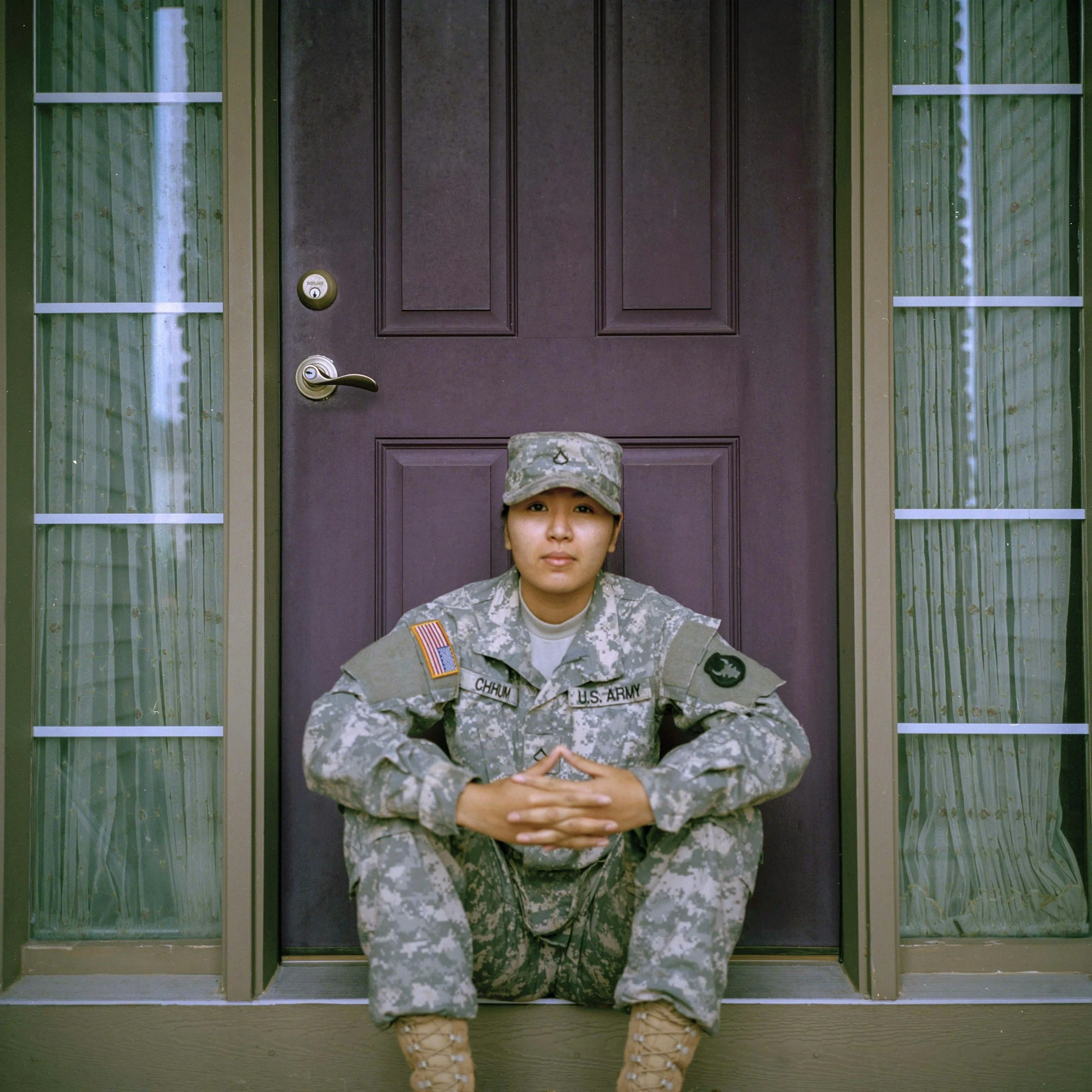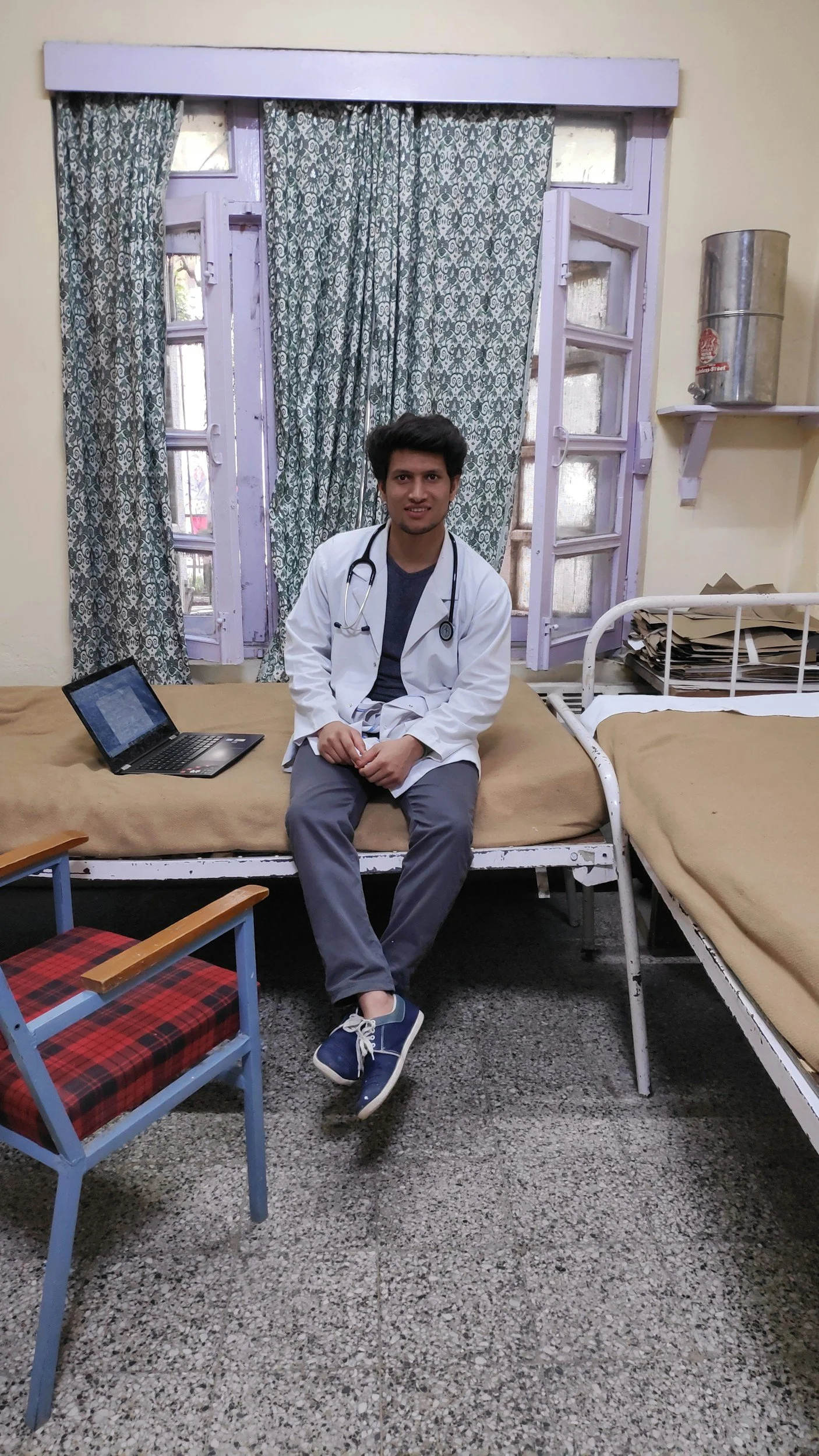
Why You’re Always on Edge: The Hidden Link Between Hypervigilance and Trauma
If you constantly scan your environment, feel easily startled, or can’t relax, hypervigilance may be a sign of unresolved trauma. ART offers a fast and effective treatment option.

Healing Emergency Room Trauma with ART
Traumatic emergency room visits can leave lasting emotional and physical distress. ART helps patients resolve the fear, confusion, and shock associated with emergency medical crises.

Healing Secondary Trauma in Medical Professionals with ART
Medical professionals often carry the emotional residue of emergencies, suffering, and loss. ART offers a fast and effective method for doctors, nurses, EMTs, and healthcare staff to resolve secondary trauma and prevent burnout.

Healing Medical Trauma with Accelerated Resolution Therapy (ART)
Medical trauma can linger long after the procedures, tests, and hospitalizations are over. Accelerated Resolution Therapy (ART) offers a gentle, rapid, and highly effective approach to healing the emotional impact of medical experiences. This post explores how ART helps patients reclaim their sense of safety, trust, and control.

Managing Burnout and Stress with Internal Family Systems Therapy
Burnout is more than fatigue—it’s emotional depletion that affects your work, relationships, and sense of purpose. Internal Family Systems (IFS) therapy helps restore balance by healing the inner conflicts that drive stress.

Overcoming Social Anxiety with Internal Family Systems Therapy
Social anxiety can make even simple interactions feel overwhelming. Internal Family Systems (IFS) therapy offers a way to understand the protective parts behind anxiety and create a sense of calm confidence in social situations.

Reducing Chronic Stress with Internal Family Systems Therapy
Chronic stress can leave you feeling drained, anxious, and disconnected. Internal Family Systems (IFS) therapy addresses the parts maintaining stress patterns, helping you reconnect with Self-energy and restore balance.

Managing Anxiety with Internal Family Systems Therapy
Anxiety can feel like a constant internal storm, making it hard to focus, sleep, or relax. Internal Family Systems (IFS) therapy helps you explore the parts creating worry and tension, providing a compassionate approach to calm your inner world.

Internal Family Systems and Social Anxiety
Social anxiety can make even simple interactions feel overwhelming. IFS therapy provides a safe framework to work with the inner parts that fear rejection or criticism, helping you build confidence and connection.

Managing Anxiety Through Internal Family Systems
Anxiety can feel overwhelming, like an endless loop of worry or fear. Internal Family Systems (IFS) offers a fresh approach by helping you understand and heal the anxious parts inside you—so you can find calm and confidence again.

Can Internal Family Systems Therapy Help with Anxiety?
Anxiety often feels like an endless cycle of worry and tension. Internal Family Systems (IFS) therapy helps by identifying the protective parts behind anxiety and teaching you how to lead from your calm, grounded Self.

What Is Internal Family Systems (IFS) Therapy and How Does It Work?
Internal Family Systems (IFS) therapy is a powerful approach to healing that helps you understand and connect with different “parts” of yourself. Whether you’re struggling with anxiety, trauma, or relationships, IFS provides a path toward self-compassion and lasting change.

How Accelerated Resolution Therapy Helps with Relationship Anxiety
Relationship anxiety can create constant worry, self-doubt, and fear of rejection, making it difficult to form and maintain healthy connections. Accelerated Resolution Therapy (ART) offers a rapid, evidence-based approach to address the underlying trauma, emotional patterns, and negative beliefs that fuel relationship anxiety. By reprocessing distressing memories and reducing emotional intensity, ART helps individuals cultivate confidence, trust, and emotional balance in their relationships.

Accelerated Resolution Therapy for Hopelessness and Negative Thinking
Persistent hopelessness and negative thinking can severely impact mental health, relationships, and overall quality of life. Accelerated Resolution Therapy (ART) offers a fast, evidence-based approach to help individuals reprocess distressing memories, release negative patterns, and cultivate a more positive, empowered mindset.

Can Accelerated Resolution Therapy Reduce Work Stress and Burnout?
Work stress and burnout are becoming widespread challenges in today’s high-pressure workplace culture. Accelerated Resolution Therapy (ART) offers a new, evidence-based way to help professionals manage chronic stress, emotional exhaustion, and burnout by addressing the underlying mental and emotional strain. This blog explores how ART works, why it’s effective, and how it can help professionals reclaim balance in both work and life.

ART for Performance Anxiety in High-Stress Professions
Performance anxiety can impact professionals in medicine, law, finance, emergency response, and countless other high-pressure fields. Accelerated Resolution Therapy (ART) offers a science-backed, rapid, and effective approach to reducing performance anxiety by addressing the root causes of stress, fear of failure, and traumatic memories that may fuel anxiety in high-stakes environments.

How ART Helps with Social Anxiety and Fear of Judgment
Social anxiety can feel overwhelming, leaving many people trapped in cycles of fear and self-doubt. Accelerated Resolution Therapy (ART) offers a unique approach to breaking through these barriers, helping individuals reframe painful memories, reduce anxiety, and build lasting confidence.

Accelerated Resolution Therapy for Generalized Anxiety Disorder
Generalized Anxiety Disorder (GAD) can feel like a constant storm of worry and unease, affecting every aspect of daily life. Accelerated Resolution Therapy (ART) is emerging as a powerful, evidence-based approach that helps individuals break free from anxiety’s grip by addressing both the mind and body. Learn how ART works, why it is different from traditional therapies, and how it may offer relief for those struggling with GAD.

Accelerated Resolution Therapy for Veterans: Healing PTSD and Trauma
Veterans carry unique burdens, often returning from service with invisible wounds that impact daily life. Accelerated Resolution Therapy (ART) offers a promising, evidence-based approach to helping veterans heal from trauma, reduce symptoms of PTSD, and regain peace of mind. This blog explores how ART works, why it is uniquely suited for veterans, and how it can support long-term recovery and resilience.

How Accelerated Resolution Therapy Helps First Responders and Healthcare Workers Manage Trauma
First responders and healthcare workers carry invisible weight: critical incidents, moral injury, and the relentless pressure to perform. Accelerated Resolution Therapy (ART) offers a fast, structured way to process traumatic images and sensations without reliving every detail. This guide explains how ART works, why it fits high-stakes professions, and how it helps you return to the job with clarity, calm, and confidence.
